
World Educational Robot Contest (WER), founded and organized by World Educational Robotics Society (WERS), is an Olympic game in educational robot industry, catering for preteens and teens from 3-18, secondary vocational students, higher vocational students and college students. WERS and WER were co-founded by Prof. Jake Mendelssohn and Dr. Yun Weimin in 2012. The core value of WER is to sharpen sci-tech talents, improve sci-tech accomplishment and cultivate successful intelligence and its philosophy is SITA education methodology established by Prof. Jake Mendelssohn and Dr. Yun Weimin. Annually, more than 1,000,000 contestants from 50 countries and regions participate in WER contests, the best platform for evaluating successful intelligence and sci-tech accomplishment. With the expansion of influence, winners of WER world championships, the highest-level of WER contests, will bring great honors to their countries, schools as well as to themselves. They will be awarded the scholarship and may even be directly admitted to elite universities or their achievement may be deemed as a crucial basis for university admission. Abilix, the global pioneer and leader of educational robot contests, is the global exclusive contest platform for WER contests.
To be the most valuable educational robot contest in the world;
To be the largest educational robot contest in the world;
To be the most advanced educational robot contest with the best projects in the world;
To be the educational robot contest that is favored by preteens and teens around the world;
To be the ideal platform in the nurturing of technology literacy and the learning of S&T knowledge for preteens and teens;
To be the ideal platform in the training of successful intelligence (a combination of analytic, creative and practical intelligence) for preteens and teens;
To be the ideal platform in cultivating and selecting technology talents.

Connecticut Robotics Society, an institution with a history of 34 years founded by Prof. Jake, is committed to promoting robot innovation and invention contests.

Awarded with the“International Leadership of educational robots” —the highest honor in the field of educational robotics.
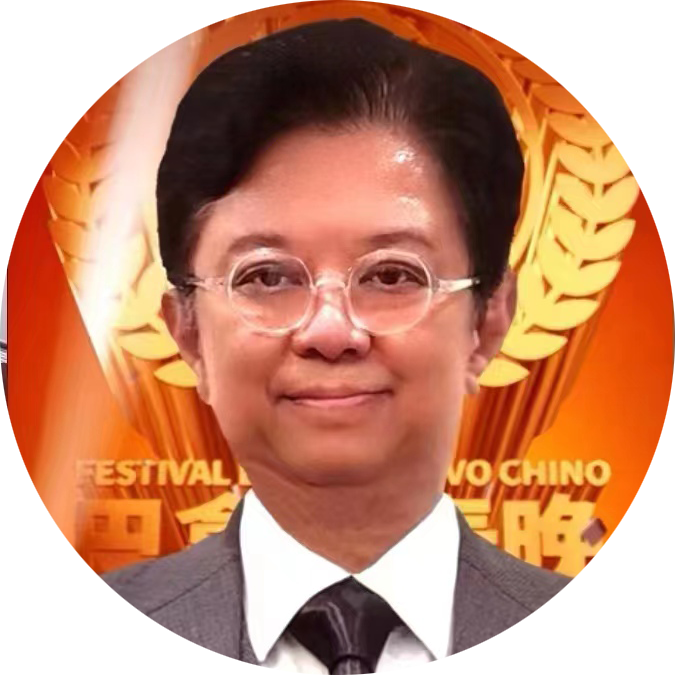
Preteens and teens aged 3-18, secondary vocational students, higher vocational students and college students are allowed to sign up for WER contest projects they are interested in WER.
WER encourages teamwork. Contestants should register as a team, consisting of 2-3 members.
In 1994, Prof. Jake Mendelssohn, co-founder of Educational Robotics, organized the earliest educational robot contest in the world, Global Fire-Fighting Home Robot Contest. In 1996, students from primary, middle and high school started to participate in robot contests.
In 2000, Dr. Yun Weimin, co-founder of Educational Robotics, held the earliest educational robot contest in China, the Abilix Cup. It soon expanded into the greatest robot contest with most contest projects in China. Meanwhile, Dr. Yun Weimin established the educational robotics theoretical system.
In 2012, Prof. Jake Mendelssohn and Dr. Yun Weimin established the World Educational Robotics Society and launched the World Educational Robot Contest(WER) in 2013. WER is designed based on their SITA education methodology, eliminating the disadvantages of the early educational robot contest.

2023.12 WER 2023 World Championship Shanghai

2022.12 WER 2022 World Championship (Online)

2021.12 WER 2021 World Championship (Online)

2020.12 WER 2020 World Championship (Online)
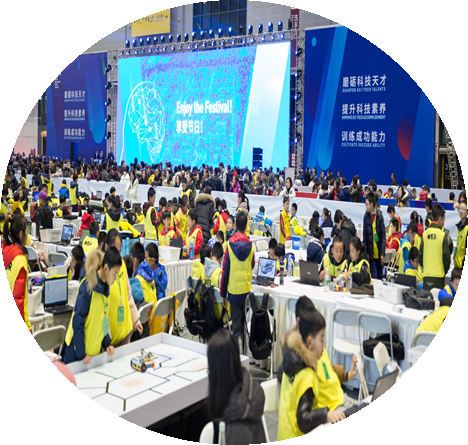
2019.4 WER 2019 Sheffield Open Sheffield, UK
2019.5 WER 2019 Zhejiang Open Ningbo, Zhejiang
2019.6 WER 2019 SRB Championship Serbia
2019.6 WER 2019 UK Championship Sheffield, UK
2019.7 WER 2019 SIN Championship Singapore
2019.7 WER 2019 Asian Open Singapore
2019.7 WER 2019 European Open Sheffield, UK
2019.8 WER 2019 Australian Open Brisbane, Australia
2019.8 WER 2019 U.S. Open Los Angeles
2019.8 WER 2019 China Open Anhui, China
2019.8 WER 2019 Malaysia Open Malaysia
2019.8 WER 2019 Henan Open Kaifeng, Henan
2019.8 WER 2019 Guangdong Open Zhuhai, Guangdong
2019.8 WER 2019 Jiangsu Open Nanjing, Jiangsu
2019.9 WER 2019 Shanxi Open Baoji, Shanxi
2019.10 WER 2019 Guadalajara Tournament Mexico
2019.10 WER 2019 Santa Catalina Tournament Mexico
2019.10 WER 2019 Mexico Championship Mexico
2019.10 WER 2019 Hebei Open Baoding, Hebei
2019.10 WER 2019 Xinjiang Open Urumqi, Xinjiang
2019.10 WER 2019 Shandong Open Rizhao, Shandong
2019.10 WER 2019 Liaoning Open Liaoyang, Liaoning
2019.11 WER 2019 HongKong Tournament HongKong, China
2019.11 WER 2019 Hunan Open Changsha, Hunan
2019.12 WER 2019 World Championship Shanghai

2018.3 WER 2018 East China Regional Jiangsu
2018.4 WER 2018 UAE Championship Dubai
2018.5 WER 2018 SRB Championship Belgrade
2018.7 WER 2018 European Open Sheffield, UK
2018.8 WER 2018 U.S. Open Los Angeles
2018.8 WER 2018 South China Regional Fujian
2018.8 WER 2018 Malaysia Open Kuala Lumpur
2018.9 WER 2018 Guadalajara Tournament Mexico
2018.9 WER 2018 Puebla Tournament Mexico
2018.10 WER 2018 Croatia Open Zagreb
2018.10 WER 2018 Bosnai Hercegovina Open Sarajevo
2018.10 WER 2018 Queretaro Tournament Mexico
2018.10 WER 2018 Santa Catarina Tournament Mexico
2018.10 WER 2018 Queensland Tournament Australia
2018.10 WER 2018 Mexico Open Mexico City
2018.10 WER 2018 Macao Invitational Macao
2018.10 WER 2018 Canadian Open Vancouver
2018.11 WER 2018 Hongkong Tournament Hongkong
2018.12 WER 2018 World Championship Shanghai
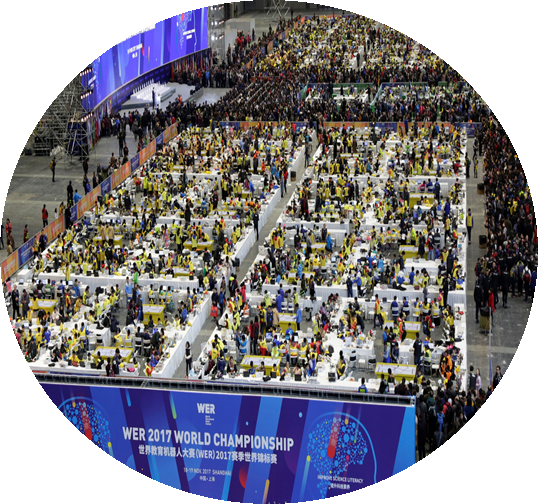
2017.3 WER League, contestants aged 4-18
2017.3 WER 2017 East China Regional Hefei
2017.6 WER 2017 Croatia Open Zagreb (The president of Croatia presented)
2017.7 WER 2017 Spanish Open Spain
2017.7 WER 2017 Australian Open Sydney
2017.8 WER 2017 North China Regional Binzhou
2017.8 WER 2017 Southwest China Regional Kunming
2017.9 WER 2017 Croatia Open Zagreb
2017.10 WER 2017 U.S. Open California
2017.10 WER 2017 South China Regional Foshan
2017.10 WER 2017 Mexico Open Guanajuato
2017.10 WER 2017 Canadian Open Vancouver
2017.11 WER 2017 Northeast China Regional Shenyang
2017.11 WER 2017 World Championship Shanghai 10,000 Contestants
2017.11 WER 2017 Northwest China Regional Xi’an

2016.3 WER 2016 East China Regional Changzhou
2016.8 WER 2016 Canadian Open Vancouver
2016.8 WER 2016 U.S. Open Los Angeles
2016.10 WER 2016 South China Regional Nanning
2016.10 WER 2016 Southwest China Regional Chengdu
2016.11 WER 2016 World Championship Shanghai 5000 contestants
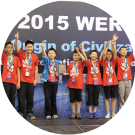
2015.3 WER 2015 South China Regional Foshan
2015.3 WER 2015 East China Regional Yangzhou
2015.7 WER 2015 Canadian Open Vancouver
2015.11 WER 2015 China Championship Beijing (Tsinghua University) 1500 contestants
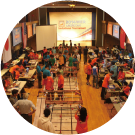
2014.5 WER 2014 Southwest China Regional Chongqing
2014.7 WER 2014 East China Regional Nanjing
2014.8 WER 2014 U.S. Open Los Angeles
2014.11 WER 2014 China Championship Shanghai
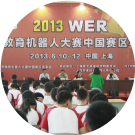
2013.10 WER 2013 East China Regional Shanghai 300 contestants
2013.11 WER 2013 China Championship Liuzhou 1000 contestants

WER World Championship, as the highest level in WER contests, is held once a year by the World Educational Robotics Society(WERS). Anually, about 10,000 contestants in a global scope participate in this contest.
Held by WERS and undertaken by the WERS local national branches, WER International Open faces both native contestants and contestants from other countries.
Held by WERS and undertaken by the WERS local national branches, WER National Championship/ Regional Tournament faces contestants of each nation/ region.
Held by WERS and undertaken by the WERS local national branches, WER at provincial or state level faces contestants of each province/ state.
To participate in WER of higher levels, contestants need to pass selection of WER at municipal/district/county/school level.
Accounting 40% of the total score.
Refer to the tasks given to contestants in advance.
Preset tasks are relatively more difficult but contestants are given enough time to prepare.
Accounting 60% of the total score.
Refer to the tasks released during the contest.
Additional tasks contain easy, medium and difficult tasks. Contestants are required to analyze the tasks on the arena, draw up the plan, write the program and debug the robot, etc., while coaches are forbidden to provide contestants with any instructions.
Additional tasks are rather challenging which is accordance with the educational concept of WER—A contest for contestants, not for coaches.





























 WER facebook
WER facebook
 WER twitter
WER twitter